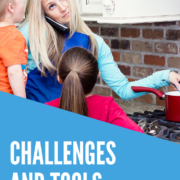Clutter Causes!
Do you ever look around and think, “Where did all this stuff come from? I just tidied up.” Clutter can creep in unnoticed until it is at the point of overwhelm.
Understanding why clutter keeps piling up has value, however, it may be difficult to admit to others or even ourselves.
Here is a list of likely reasons on why:
- Lack of time management skills – There are a bunch of potential issues here:
- You don’t know how long your tasks take so you can’t plan
- You don’t delegate tasks
- You don’t know how to diminish your tasks
- You are overscheduled so the little stuff gets push off to a later that never comes.
The fix sounds easy but if you aren’t practiced at it, it will take some time to learn. Here is it:
- Learn how long your tasks take (this means actually timing yourself and writing it down a few times for each task). Try making an ideal calendar of how you would like to spend your week and stick to it as closely as you can.
- Teach someone else who needs to know how to do something whether it is at work or at home. It will take time in the beginning but in the long run it will save you time and give someone else a valuable skill.
- When pressed for time, find short cuts, pre-make dinners, use a report that with some editing will do the job just fine, dust more often so your house appears cleaner and keep it organized looking, keep a packing list on your phone so you don’t have a re-write them for every trip, etc.
- Say “No” more often, be picky about how you spend your time, plan for the little yet important stuff first that people tend to forget about when planning their day, i.e. eating, sleeping, commuting, bathroom breaks.
- Lack of habits and maintenance – Many people don’t have a system to deal with simple activities like sorting mail, school work that comes home, or what do it with their work bag when they walk in the door so those items just end up sitting around or piling up or anything that needs to come and go with you. The fix is to create a landing zone or a system for mail. Again not easy-I spend time in almost clients’ house setting up this type of custom system even if that wasn’t why I was originally hired. In addition to no system most people don’t have a plan for when they will maintain such a system. The fix is to plan a time to develop these habits. Tying a new habit to an established habit is a great way to remember to do it. Or making it visual if you need that type of reminder.
- Emotion Attachment – We attach emotions to items. I am not suggesting that you get rid of everything I might consider clutter. I prefer a comfortable homey feeling as opposed to living in the minimalist environment but within reason. My mom died while I was pregnant with my last child. I delivered a week and half after burying her. It was difficult. I kept everything that was hers; I was overly emotional and protective of her belongings. As time went on and my emotions settled down, I began to get rid of some of her belongs that I knew I would never use. Little by little, every year I would get rid of a little more that I was no longer as attached to. For me, the fix here was time but sometimes the fix is working with someone who isn’t attached to the items who can question you as to why the item is important and what purpose it might serve you. My general rules are that items must be whole/complete, unbroken, in working condition and make you happy when you look at them.
- Compulsive Shopping – Shopping can be a huge problem for people who truly have addiction. Organizing what you have already bought isn’t going to help much until you get help for the underlying condition. Seek out help and then get someone to help you organize what you need to keep. Search here for help.
- Different Organizing Styles Living Together -Are you married to someone who isn’t visually aware? Do your kids not seem to notice the mess around them? But the clutter is driving you nuts! Not everyone organizes the same way. The fix here is compromise. Find a place where everyone can function without too much drama. Some people like piles and know exactly what is in them, some like files and cleaned off surfaces, some are somewhere in between. My general rule is that any area of a home should be organized with a system that makes sense to the person who maintains it most often. So if your spouse’s home office it only functioning as his home office and his is a piler, close the door and don’t let it bother you as long as he really knows where his stuff is. If it is a common area of the house like the kitchen, the organizing solutions should lean toward whoever cooks the most. If the cooking is shared, each of you will need to make some compromises.


Big Bang Coaching, LLC provides coaching for the neurodiverse.





